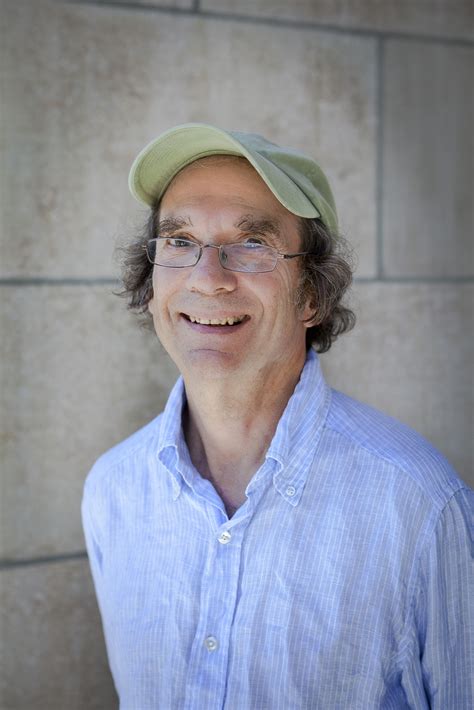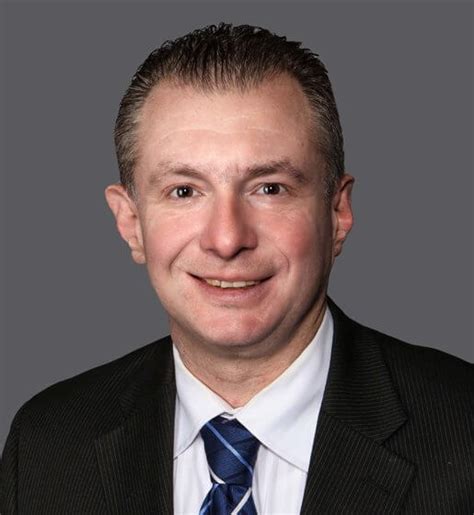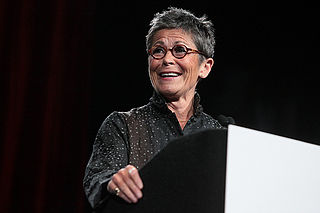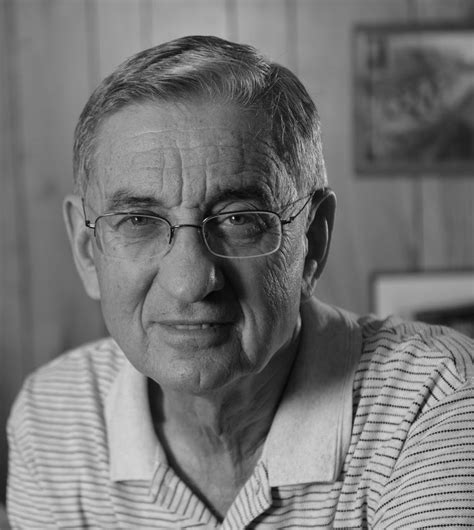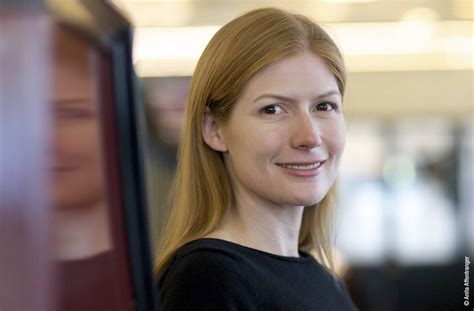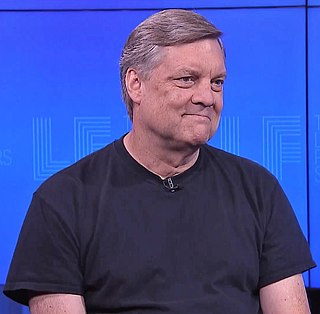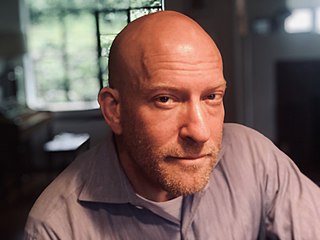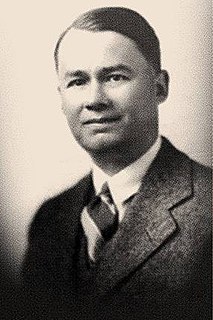Top 828 Housing Quotes & Sayings - Page 14
Explore popular Housing quotes.
Last updated on December 22, 2024.
Half of NYC's homeless populations are families.Homeless people have been ignored for too long. I'll just say this: If you are a family on the brink of eviction you are 80% less likely to get evicted if you have legal counsel. However, there is no right to legal counsel in housing court.It would cost the city $12,500 to grant that family legal counsel. Meanwhile, the average stay for a homeless family in a shelter once they have been evicted cost the city $45,000. So not only does it seem like the right thing to do morally, it's also the right thing to do fiscally.
The poor, no less than the rich, stay tuned in to the Dream Machine in bad times as well as good....By 1995, millions of the poor were left without housing, medical care; jobs, or educational opportunity; six million children-one of every four kids under 6 years of age in America-were officially poor. Mired in Third-World conditions of poverty while video-bombarded with First-World dreams, rarely has a population suffered a greater gap between socially cultivated appetites and socially available opportunities.
So, what people are actually left with to spend is maybe 25 to 30% of their income on goods and services, after paying taxes and after paying the FIRE sector (Finance, Insurance, Real Estate). Whether it's housing insurance or mortgage insurance. So there's an idea of distracting people. Don't think of your condition. Think of how the overall economy is doing. But don't think of the economy as an overall unit. Think of the stock market as the economy. Think of the rich people as the economy. Look at the yachts that are made. Somebody's living a lot better. Couldn't it be you?
If the white man can come here uneducated and as an immigrant, and within 10 or 15 years set up an industry that provides job opportunities and educational opportunities for black people, then if the black man, the black leadership, who has access to all of this money and has all of these degrees today, can't use his talent and his know-how to set up business opportunities, job opportunities, housing opportunities for the black people the same as the white leaders have done for white people, then these black leaders need to get off the boat.
Already, new forms of short-term and long-term rental housing are popping up in some metro areas. You can take on a house or apartment for a few months or even a year or two in developments that are striving to provide critical elements of community - schools, healthcare, social and cultural institutions - even for people who are living there only temporarily. People invested in a home, mortgage, or community are less likely to move to more economically vibrant locales. That kind of entrenchment is going to be an impediment to the coming spatial fix.
I'm writing about the things I see all around me. Growing up in Mississippi, I've seen how these backward ideas about class and race and healthcare and education and housing and racism impact everyday lives. For example, my mother wouldn't let me go to my homecoming dance because the yacht club where they were having the dance threw a fundraiser for David Duke, an ex-Klan member, when he was running for governor of Louisiana. So I grew up seeing how personal politics could be.
The history of lead is a history of neglect. It's a history of decisions on our part not to address the broad implications of what we did to ourselves during the industrial revolution and in the first part of the century when our cities expanded broadly, when we built our housing and we began to depend upon lead as a mainstay of our new industrial culture. We put this stuff in even though we knew it was dangerous, we knew it was going to hurt kids.
Turtles have always been my sigil, I suppose. When I was a kid, growing up in Bayonne, NJ, I lived in a federal housing project, and we were not allowed to have a dog or cats. The only pets I could have were turtles. So, I had an entire toy castle filled with dime-store turtles. I gave them all names, and since they were living in a toy castle, I decided they were all knights and kingsand I made up stories about how they killed each other and betrayed each other and fought for the kingdom. So, Game of Thrones, actually began with turtles. I decided later to recast it with actual human beings.
From their struggles to establish dominance over each other, siblings become tougher and more resilient. From their endless rough-housing with each other, they develop speed and agility. From their verbal sparring they learn the difference between being clever and being hurtful. From the normal irritations of living together, they learn how to assert themselves, defend themselves, compromise. And sometimes, from their envy of each other's special abilities they become inspired to work harder, persist and achieve.
The suburbs have always been like an American version of utopia and a reflection of their hopes and fears. Erika's version of American suburban utopia - which I am renaming the outer ring - is a diverse place, with affordable housing, the possibility for people to have small businesses, which is more realistic in the outer ring than in the city with its huge costs, decent public transportation and the ability to access art and cultural events. That's my dream for America.
We need to remake and reinvent our housing system so that it supports the flexibility and mobility of our economic system broadly. Home-ownership is rewarded by the federal tax code, which made great sense when that piece of the American Dream, and all the consumption that came with it, was essential to rebuilding the economy. These days, however, it feels like a huge penalty to people who want to travel light within the new mobile economy without a mortgage to hold them back.
Today, Musana is a thriving orphanage in Iganga, Uganda, housing over one hundred children! When asked what it was that made her fight for these children she simply said, “I just kept thinking, ‘If I don’t do something, who will?' Today, so many of us Christians talk so much about being the hands and feet of Christ, but never really displaying what that looks like. It’s not about talking. It’s about doing! It’s time for us to do something!
I think of what's happening in Detroit as part of something that's much bigger. Most people think of the decline of the city as having to do with African-Americans and being in debt, and all the issues like crime and bad housing. But what happened is that when globalization took place, following World War II, Detroit's role as the center and the symbol of industrialization was destroyed. It wasn't because we had black citizens mainly or a black mayor; it was because the world was changing.
Today it is perfectly legal to discriminate against criminals in nearly all the ways that it was once legal to discriminate against African Americans. Once you're labeled a felon, the old forms of discrimination - employment discrimination, housing discrimination, denial of the right to vote, denial of educational opportunity, denial of food stamps and other public benefits, and exclusion from jury service - are suddenly legal.
Architecture is really about well-being. I think that people want to feel good in a space... On the one hand it's about shelter, but it's also about pleasure. The intention is to really carve out of a city civic spaces and the more it is accessible to a much larger mass in public and it's about people enjoying that space. That makes life that much better. If you think about housing, education, whether schools and hospitals, these are all very interesting projects because in the way you interpret this special experience.
Just like a house is worth whatever a bank's going to lend against it, an education is worth whatever the bank is going to lend the student to pay the university. So the availability of government-guaranteed student loans has vastly inflated the cost of education, just like it's inflated the cost of housing.
Unfortunately, throughout the housing crisis we've seen innocent homeowners who have been victims of shady mortgage lenders and unscrupulous individuals who have used a down market to line their own pockets at the expense of others. This bill is designed to send a message by revising our laws to ensure criminals are brought to justice and that law enforcement has the tools to uncover these fraudulent schemes and go after the bad actors. Criminals should be put on notice that ripping off homeowners and taxpayers won't be tolerated.
I think what is being pointed out by African-Americans is that from slavery forward they have been living in a supposed democracy which treats them as less than other citizens, less than whites in the society. And I think that pointing out that there are structures of discrimination in the society, deeply rooted racist structures, that segregate housing, that send black children to ill-equipped schools, that discriminate in the workplace - these are truths about our society that must be faced.
As the data from the past decade clarify, there is no evidence that poverty causes crime but a great deal of evidence that crime causes poverty. By aligning themselves against the police, against commonsense tactics like stop and frisk, against metal detectors in public housing, against swift and certain punishment, and for a broad array of legal protections for accused criminals, liberals helped to aggrieve the lives of the poor and society as a whole.
There are times when a market such as housing, transportation or the stock or mortgage market keep rising and people with capital want to join in this growth. Soon the markets become overheated, partly because of the abundance of investment money and speculation. This is when the government should raise interest rates and increase the cost of borrowed money. Governments are shy about doing this because it could cause the very recession. Yet this is the best time to do this so that the inevitable recession never reaches the magnitude of the recent Great Recession.
Cocaine and crack are essentially the same thing. Cocaine is a middle-class drug. Crack is a poor person's drug, which carries a felony conviction for possession. And once you get this felony conviction, which given that the whole community is pretty much strung out on it, you become basically sidelined into an alternative kind of lifestyle. You become completely marginalized. You can't get public housing, you can't get a lot of jobs, you can't vote. You have a real problem doing anything to get you out of the rut that you're in. You become basically a non - person.
In 1897, troops from the greatest empire the world had ever seen marched down London’s mall for Queen Victoria’s diamond jubilee. Seventy years later, Britain had government health care, a government-owned car industry, massive government housing, and it was a shriveled high-unemployment socialist basket-case living off the dwindling cultural capital of its glorious past. In 1945, America emerged from the Second World War as the preeminent power on earth. Seventy years later . . . Let’s not go there.
These people talk of a "middle-of-the-road" policy. What they do not see is that the isolated interference, which means the interference with only one small part of the economic system, brings about a situation which the government itself — and the people who are asking for government interference — find worse than the conditions they wish to abolish: the people who are asking for rent control are very angry when they discover there is a shortage of apartments and a shortage of housing.
I know my dear brother, President [Barack] Obama, has a bust of Martin King right there in the Oval Office, but the question is are is he going to be true to who that Martin Luther King, Jr., actually is? King was concerned about what? The poor. He was concerned about working people. He was concerned about quality jobs. He was concerned about quality housing. He was concerned about precious babies in Vietnam, the way we ought to be concerned about precious babies in Afghanistan and precious babies in Tel Aviv and precious babies in Gaza.
In his second term, [Ronald] Reagan completed the work of his first term - the rich got really rich, everything was deregulated, advocacy programs were quashed, the Savings and Loan program was trashed, the deficit was tripled, unions were busted, Housing and Urban Developing was in shambles, banks were closing, the military got lots of new toys, the religious right was strong, and AIDS was ignored.
The Center for Immigration Studies estimates that 62 percent of households headed by illegal immigrants use some form of cash or non-cash welfare programs like food stamps or housing assistance, tremendous costs, by the way, to our country, tremendous costs. This directly violates the federal public charge law designed to protect the United States Treasury. Those who abuse our welfare system will be priorities for immediate removal.
It is no exaggeration to say that rising inequality has driven many of the 99 percent into a financial ditch. It also helped spawn the housing bubble that gave us the financial crisis of 2008, the lingering effects of which have forced many OWS protesters to try to launch their careers in by far the most inhospitable labor market we've seen since the Great Depression. Even those recent graduates who manage to find jobs will suffer a lifelong penalty in reduced wages.
According to the Tax Foundation, the average American worker works 127 days of the year just to pay his taxes. That means that government owns 36 percent of the average American's output-which is more than feudal serfs owed the robber barons. That 36 percent is more than the average American spends on food, clothing and housing. In other words, if it were not for taxes, the average American's living standard would at least double.
There's no question that in my lifetime, the contrast between what I called private affluence and public squalor has become very much greater. What do we worry about? We worry about our schools. We worry about our public recreational facilities. We worry about our law enforcement and our public housing. All of the things that bear upon our standard of living are in the public sector.
If you look at Detroit, that mayor, it's been a train wreck for 40 years, the population has gone from 2 million to 700,000. This Mayor comes in, and he talked about streetlights, sanitation, jobs, policing, schools, affordable housing. He's doing it all, and it's growing for the first time in 30 years. Literally, one man. But that one man couldn't do it without business. And business couldn't have done it without a political environment where they wanted to improve things. If you had an antibusiness environment there, it would still be down there.
This was a very progressive group of clergy who foresaw the race riots that were going to take place when Dr. King started helping the local civil rights community push for open housing. They were sort of hoping against hope that we could educate kids in a way that could counter some of the racist messages they were imbibing at home. I don't know whether we did any good, but it changed my life in every single way.
If you have to pay about forty to forty-three percent of your income for housing, you also have to pay fifteen percent of your paycheck for the FICA for Social Security wage withholding. You have to pay medical care, you have to pay the banks for your credit card debt, student loans. Then you only have about twenty-five or thirty-five percent, maybe one-third of your salary to buy goods and services. That's all.
People at the top spend less money than those at the bottom so when you have redistribution toward the top, aggregate demand goes down. Unless you intervene, you're going to have a weak economy unless something else happens. That something else could be a bubble. The United States tried a tech bubble and a housing bubble, but those were not sustainable answers. So I view inequality as a fundamental part of our macroeconomic weakness.
Developed and benefited from the unsustainable patterns of production and consumption which have produced our present dilemma. It is clear that current lifestyles and consumption patterns of the affluent middle class-involving high meat intake, consumption of large amounts of frozen and convenience foods, use of fossil fuels, appliances, home and work-place air-conditioning, and suburban housing-are not sustainable. A shift is necessary toward lifestyles less geared to environmentally damaging consumption patterns.
What Habitat does is much more than just sheltering people. It’s what it does for people on the inside. It’s that intangible quality of hope. Many people without decent housing consider themselves life’s losers. This is the first victory they may have ever had. And it changes them. We see Habitat homeowners go back to school and get their GEDs, enter college, do all kinds of things they never believed they could do before they moved into their house. By their own initiative, through their own pride and hope, they change.
There's an evidence from a number of studies which show that where you grow up and the age at which you move to the suburbs or to a neighborhood that in general seems to have better conditions can really affect a child's outcomes. The kids who moved at young ages are dramatically better as adults. They're earning 30 percent more, they're 27 percent more likely to go to college, relative to the kids who stayed in the high poverty public housing projects. And so there's clear scientific evidence that you can change kids' outcomes just based on where they grow up.
There's a black lawyer in Galveston, Texas, who was the unpaid NAACP general counsel in Texas. He had a great record in housing discrimination, labor discrimination. He decided to take as a client a member of the Ku Klux Klan because the state wanted to get the membership lists of the Klan to find out if they could get something on the Klan. And he said, `I got to take you. I despise you. But we, the NAACP, won that case; NAACP vs. Alabama in the 1950s. Nobody has the right to get your membership lists.' He was fired from the NAACP. To me, he's a hero.
When they started to drain a swamp where birds and fish had lived, for a new housing development down the road from his apartment, Steven watched the protests and the preparations with interest. The bird people were furious, the developers unmovable, and Steven was filled with relief that the fight wasn't his. Nothing here was his... He thought there should have been something sad about how little he was tied up with the place, but instead it felt like freedom. He was free because it wasn't his water here, and they weren't his fish.
The big divide in this country is not between Democrats and Republicans, or women and men, but between talkers and doers. Think about the things that have improved our lives the most over the past century - medical advances, the transportation revolution, huge increases in consumer goods, dramatic improvements in housing, the computer. The people who created these things - the doers - are not popular heroes. Our heroes are the talkers who complain about the doers.
Weirdly enough, the best thing that ever happened to black people in the last twenty or thirty years was the O.J. Simpson verdict because it shut down the white guilt bank. And white guilt has never led to anything good. It's brought us spiraling crime rates, mostly with black victims, and a permanent underclass living in public housing projects. For years, liberals cried that "law and order" and "welfare reform" were racist code words.
For Russians in the '90s, there was that sense of not knowing what the future held at all. And coming off a long period of when people actually were robbed of the ability to plan their future - that's very much a part of totalitarian control - that exacerbated it. In this country, we are not coming off a long period like that. But I think that for a lot of Americans, as a result of globalization, as a result of the housing crisis, the future is just too uncertain. And their place in the world is too uncertain.
Legislators in Kansas, Arizona and 23 other states who are properly determined to protect religious freedom can begin by asking themselves: Does any religious conviction justify denying lesbians and gays a basic legal promise of non-discrimination in hiring, public accommodations, and housing? Surely the answer to this question is no. Correcting that inequity would begin the process of recognizing that both sides - gay couples and religious objectors - have rights and that reasonable accommodation is possible only when both sides have something to gain.
Housing in New York seemed to fit Norman Lear. In addition, his shows confronted all kinds of social issues - racial separation and prejudice being foremost among them. The Evans of Good Times were the first black family to be the focus of a primetime American TV show. A lot of the people we came across in filming were familiar with the role Norman played in catalyzing important national conversations about race. They seemed grateful to him for trying to move the needle.
Seven percent of the Clinton foundation, the money raised, goes for travel and entertainment expenses for people that work at the foundation, including a lot of Clinton family people. So 7% travel, entertainment, whatever else - housing - for employees of the foundation, 5% donated to charity. Which is fine. Look, they're not breaking any law doing it. My only point is, they get the benefit of the doubt being people compassionate and caring greatly about people.
One of the most insidious consequences of the present burden of personal income tax is that it strips many middle class families of financial reserves & seems to lend support to campaigns for socialized medicine, socialized housing, socialized food, socialized every thing. The personal income tax has made the individual vastly more dependent on the State & more avid for state hand-outs. It has shifted the balance in America from an individual-centered to a State-centered economic & social system.
First, we must stop wasting energy. A quarter of the UK's carbon emissions come from the home. Our housing stock - the oldest in Europe - is costing us the earth... After transport, heating is the second biggest driver of energy demand in Britain. British Gas research suggests that householders who put in energy efficiency measures cut their gas consumption by 44%. Better insulated buildings will do much of the work for us.
The Fed needs to adopt new tools, on its own and perhaps in cooperation with the other parts of the US government, to improve the economy from the bottom up. This includes increasing facilities for debt forgiveness for under-water mortgages and excessive student loans; increased credit facilities for small businesses and cooperatives; helping to underwrite mechanisms for creating affordable housing in cities; and more restrictive enforcement of financial regulatory rules to help rein in excessive banker risk and pay.

